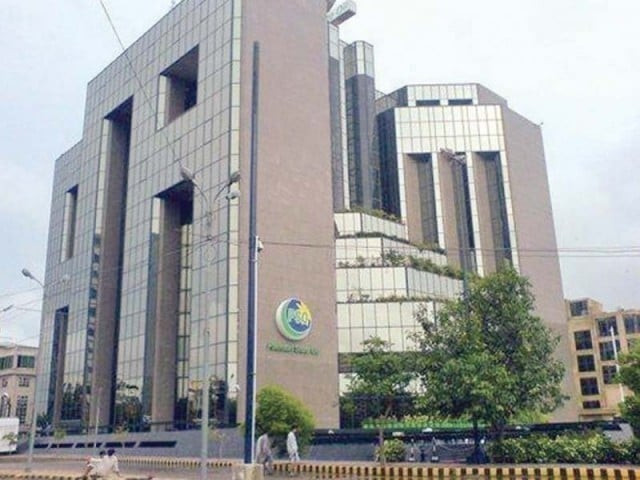PSO’s profit dips 15% to Rs15.46 billion
Board recommends cash dividend of Rs5 per share, 20% bonus shares

PSO’s stock price surged 4.58%, or Rs15.42, to close at Rs352.13 with 2.44 million shares changing hands at the PSX.
PHOTO:FILE
After-tax profit had stood at Rs18.22 billion in the previous fiscal year, according to a notification issued by the company to the Pakistan Stock Exchange (PSX) on Monday.
Accordingly, earnings per share fell to Rs47.42 in FY18 compared to Rs55.90 a year earlier. The board of directors recommended a cash dividend of Rs5 per share and 20% bonus shares (one share against every five shares). The entitlement will be given to shareholders whose names appear in the register of members on October 9, 2018.
Earlier during the year, PSO had paid an interim cash dividend of Rs10 per share.
Top court orders three-year audit of PSO
Topline Securities’ analyst Umair Naseer said earnings were slightly lower than expectations, but the cash dividend and bonus shares were better than anticipation.
PSO’s stock price surged 4.58%, or Rs15.42, to close at Rs352.13 with 2.44 million shares changing hands at the PSX.
Other income declined 33% to Rs7.49 billion in FY18 on the back of lower penal income and absence of mark-up on Rs43.8 billion worth of Pakistan Investment Bonds that matured in July 2017, the analyst said. The effective tax rate on profit increased to 43.07% (Rs11.96 billion) compared to 37.89% (Rs11.12 billion) last year.
PSO curbs fuel oil imports as power generation need eases
On the flip side, sales of the company improved 19% to Rs1.30 trillion in FY18, driven by higher oil prices and inventory gains, he said. Average international oil prices increased 31% during the year.
In volumetric terms, oil sales of the state-owned company, which has remained the largest oil marketing company, dipped 20% to 12 million tons in FY18, primarily due to a 35% drop in furnace oil sales amid weak demand from power producers.
“Oil sales, excluding furnace oil, were up 3% on a year-on-year basis,” he said.
Gross profits of the company improved 7% to Rs39.63 billion during the year. On the other hand, other operating expenses grew 12% to Rs15.12 billion, restricting the company’s earnings. “Key risks to the stock include volatility in oil prices, inventory losses, rupee depreciation, exchange losses and circular debt pile-up,” he said.
Published in The Express Tribune, August 14th, 2018.
Like Business on Facebook, follow @TribuneBiz on Twitter to stay informed and join in the conversation.



















COMMENTS
Comments are moderated and generally will be posted if they are on-topic and not abusive.
For more information, please see our Comments FAQ